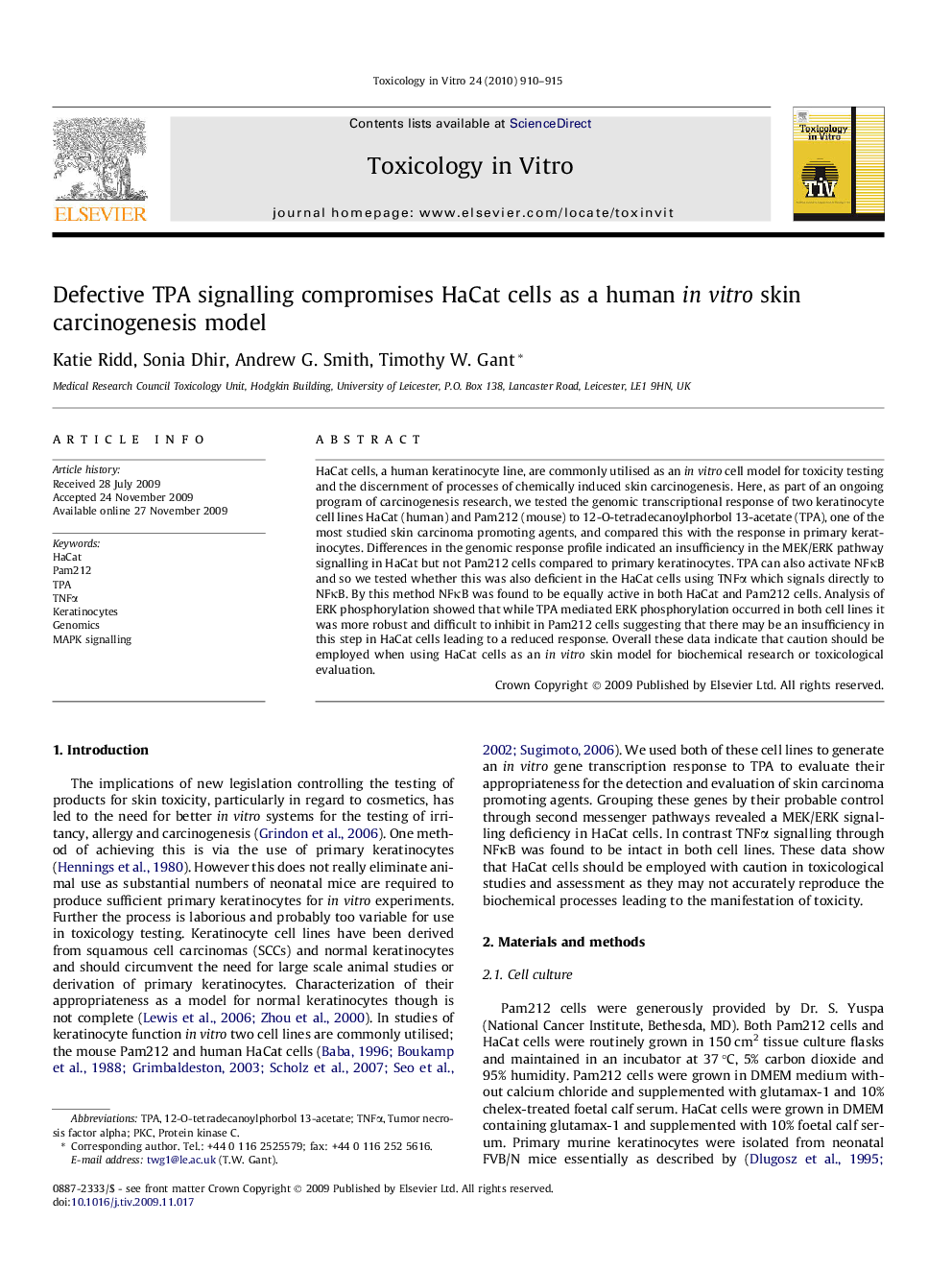| کد مقاله | کد نشریه | سال انتشار | مقاله انگلیسی | نسخه تمام متن |
|---|---|---|---|---|
| 2602950 | 1133802 | 2010 | 6 صفحه PDF | دانلود رایگان |

HaCat cells, a human keratinocyte line, are commonly utilised as an in vitro cell model for toxicity testing and the discernment of processes of chemically induced skin carcinogenesis. Here, as part of an ongoing program of carcinogenesis research, we tested the genomic transcriptional response of two keratinocyte cell lines HaCat (human) and Pam212 (mouse) to 12-O-tetradecanoylphorbol 13-acetate (TPA), one of the most studied skin carcinoma promoting agents, and compared this with the response in primary keratinocytes. Differences in the genomic response profile indicated an insufficiency in the MEK/ERK pathway signalling in HaCat but not Pam212 cells compared to primary keratinocytes. TPA can also activate NFκB and so we tested whether this was also deficient in the HaCat cells using TNFα which signals directly to NFκB. By this method NFκB was found to be equally active in both HaCat and Pam212 cells. Analysis of ERK phosphorylation showed that while TPA mediated ERK phosphorylation occurred in both cell lines it was more robust and difficult to inhibit in Pam212 cells suggesting that there may be an insufficiency in this step in HaCat cells leading to a reduced response. Overall these data indicate that caution should be employed when using HaCat cells as an in vitro skin model for biochemical research or toxicological evaluation.
Journal: Toxicology in Vitro - Volume 24, Issue 3, April 2010, Pages 910–915